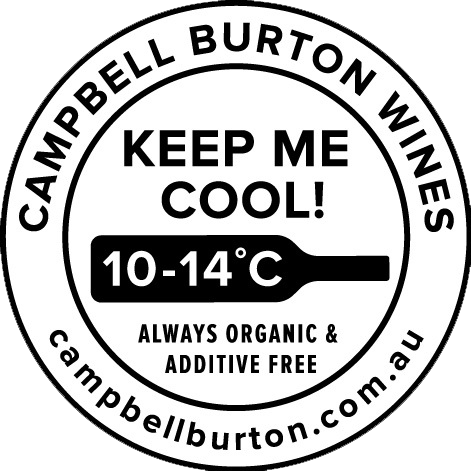Les Petites Mises
Quarante, Languedoc
Les Petites Mises is a young domaine, located about 30 minutes west of Bezieres, owned by Nathalie Guillevic and Etienne Granier. The couple farm a great vineyard and employ an incredible system of vinification to make their wines.
Having left completely different careers (health food) in the Rhone Valley, Nathalie and Etienne discovered the world of organically farmed, additive-free wine and very quickly fell in love. Remarkably, they managed to work for a couple of years and learn to farm and make wine with super cult Provencal domaine Cadavre Exquis, Marc and Shirine Salerno's fascinating domaine, where the vineyard is never sprayed with anything, there's no winery (fermentation takes place outdoors) and the wines are run to demijohn and then buried up to their necks in the vineyard for elevage.
In late 2016, they found a vineyard for sale 8kms from the village of Quarante, just west of Bezieres in the Herault (Languedoc). The vineyard was already registered with Natur et Progres (the same group that Claude Courtois, Oliver and Baptiste Cousin, Marc and Shirine Salerno and plenty of other stars of the world of organic farming belong to) and had been organically farmed already for nearly 30 years. The couple found a small space to vinify the wines in Quarante and their adventure with their own vineyard began.
The Petites Mises vineyard is comprised of 90-year-old carignan, 90-year-old macabeo, 30-year-old syrah and their baby plantings of piquepoul, clairette and aramon. The soil here is clay, and the impact of the terroir on ripening is profound.
In the vineyard, the soil is never turned and treatments include teas of nettle, burdock and yarrow. Generally, Nathalie and Etienne use a group of three herbal teas for dry weather and another three for wet weather. Essential oil of orange is used to combat mildew. and compost juice is used to awaken the bacteria that consume mildew.
Fruit is harvested and co-fermented, depending on the cuvee. The initial alcoholic fermentation takes place in old barrels with the heads removed (these are cleaned simply with a decoction of peach leaves). The wines are typically on skins for 30-40 days, each vessel covered and sealed with a rubber strap to roughly capture CO2. Then, every wine is pressed and transferred to 54L demi-john for elevage, the length of which depends on the cuvee.
The maturation in glass takes considerably more time with tannin chains and phenolic matter remaining bound in the wine due to the lack of oxygen. In essence, all of the grape material and reflection of terroir remains suspended in the wine. This, coupled with the fact that there is no external flavour such as oak, stainless steel, amphora or oxidation, creates a very distinctive style.
Nathalie and Etienne stressed that they love working with demi-john for this sense of purity and that one of their primary goals is to bottle very correct wines. In the case of one vessel having VA, for example, they only need to exclude 54L from the final wine and not worry about a much, much larger tank of hundreds or thousands of litres being affected.
Bottling takes place very slowly, by gravity, from each demi-john and the bottles are all labelled with the precise vessel that bottle was filled from. As such, the wines are super flawless — hypercorrect. The flavours of vineyard and season are amplified in a similar way to hearing a song you know very well through an extraordinary sound system for the first time.
Information on previous wines
-
Carignan and syrah from vines of mixed age planted on clay and limestone.
2020 Fruit was destemmed and fermented together for 45 days before being pressed off to glass demijohns for a year of elevage. Brambly fruit with some spicy herbaceous character, with fine tannins.
2017 Carignan, syrah and macabeu. Very deep, with dark fruit and a suave tannic structure.
-
From an old parcel of carignan planted over clay and limestone
2019 Fruit was destemmed and fermented on skins for two months, before being pressed off to glass demijohns for two years of elevage. Dark and brooding, with ripe fruit, salinity and gently tannic structure.
2017 Deep, with brooding detail of old vines on clay.
-
2018 30-year-old syrah from a year of slightly cooler conditions. Silken tannins, with very varietal fruit.
-
2018 Carignan from vines between 60 and 100 years old, planted over fine silty soils. Fruit was destemmed and macerated for a month, before being pressed to glass demijohns for three years of elevage. A luminous wine heady with red fruit and wildflowers.
-
Macabeu from an 80 year old parcel planted over fine, silty soils. Fruit is destemmed and fermented on the skins for a week, before being pressed off to glass demijohns
2020 Delicate and saline, with yellow orchard fruit, seaspray and gently bitter phenolics.
2019 Compact and elegant, with plenty of primary phenolic matter and notes of almond and herbs.

